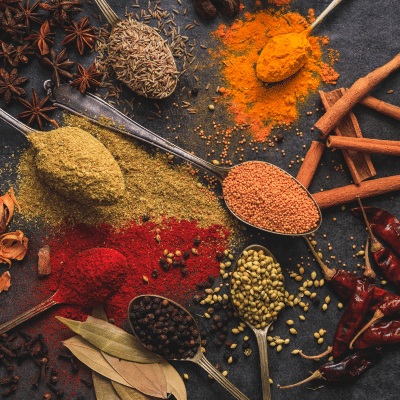|
Getting your Trinity Audio player ready...
|

AI is increasingly becoming a staple ingredient in the culinary industry, revolutionizing how food is created, prepared, and enjoyed. From recipe generation and menu development to food quality control and personalized recommendations. AI algorithms are reshaping every aspect of the culinary experience. Chefs and restaurateurs are leveraging AI in the kitchen to unlock new levels of creativity.
Whether it’s automating kitchen tasks, analyzing flavor profiles, or minimizing food waste, AI technologies are enhancing efficiency, consistency, and innovation in kitchens around the world.
AI is increasingly being utilized in the culinary industry in several innovative ways:
- Recipe Generation and Optimization: AI algorithms can analyze vast databases of recipes to generate new ones or optimize existing recipes. All based on criteria such as flavor combinations, nutritional value, or cultural preferences.
- Menu Development: Restaurants can leverage AI to analyze customer preferences, seasonal ingredients, and food trends. This helps to develop menus that are both appealing to customers and economically viable.
- Food Quality Control: AI-powered systems can monitor food quality by analyzing images of ingredients or dishes. This detects defects, ensuring consistency, and maintaining food safety standards.
- Personalized Recommendations: AI-driven recommendation systems can suggest dishes to customers based on their past orders, dietary restrictions, and taste preferences. This enhances the dining experience and increasing customer satisfaction.
More ways AI is increasingly being utilized in the culinary industry
- Kitchen Automation: AI-powered robots and automation systems can assist chefs in various tasks such as chopping, mixing, and cooking. This improves efficiency and reducing labor costs.
- Food Delivery Optimization: AI algorithms can optimize food delivery routes, predict delivery times accurately, and even suggest dynamic pricing strategies.
- Waste Reduction: AI can help minimize food waste by predicting demand, optimizing inventory management, and suggesting creative ways to utilize surplus ingredients.
- Flavor Analysis: AI technologies can analyze the chemical composition of food ingredients to understand flavor profiles better. This leads to the development of new and unique taste experiences.
- Customer Interaction: AI-powered chatbots and virtual assistants can handle customer inquiries, reservations, and feedback, providing personalized and efficient service.
AI is revolutionizing the culinary industry by enhancing creativity, efficiency, and customer satisfaction. This addresses challenges such as food waste and quality control. As technology continues to evolve AI promises to redefine the boundaries of culinary artistry. This will delight palates and push the boundaries of culinary creativity.
Learn more about TWINTEL or call us at (888) 428-0599 or schedule a meeting today.
Click Here To Claim Your FREE Assessment and Action Plan
Mark Johnson is a passionate technology professional with over 11 years of experience in the Managed Services IT space and a wide variety of industry-leading certifications. Mark’s extensive Managed IT experience and aptitude for quickly learning and adapting to new technologies has equipped him to offer valuable insight across a broad spectrum of business technology solutions.
